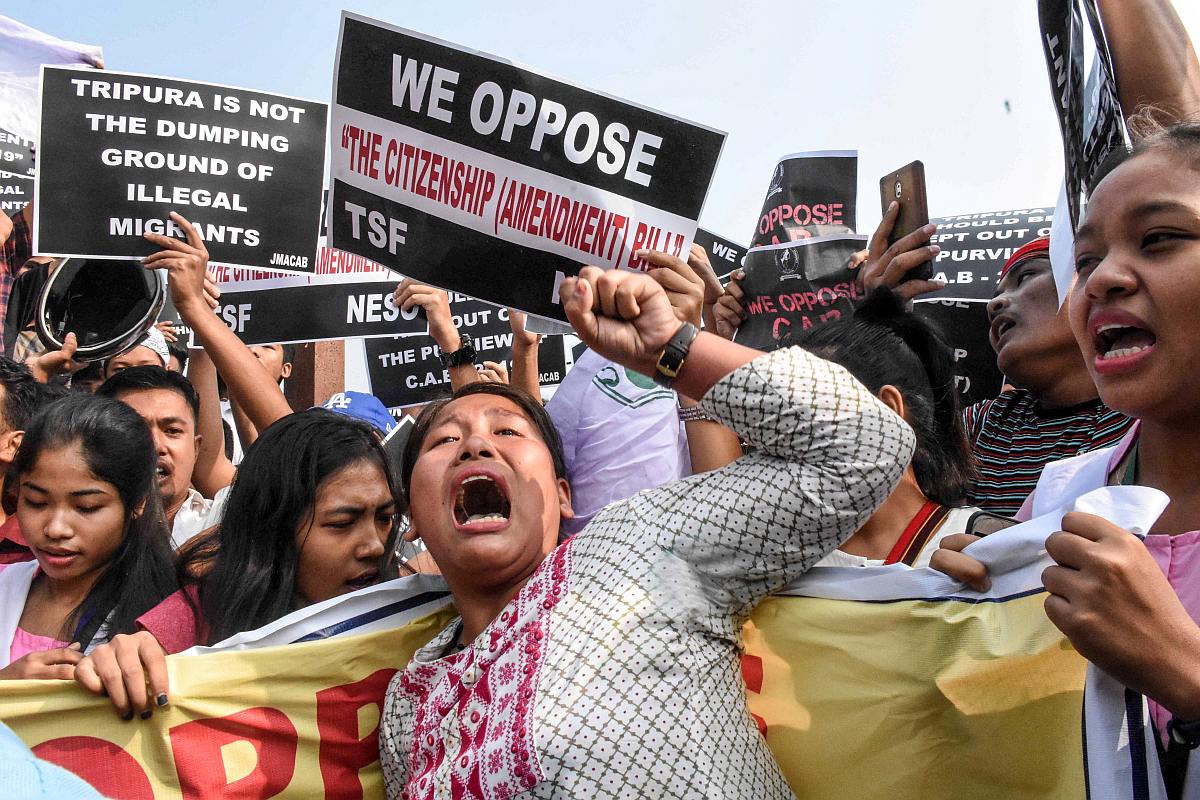The controversial Citizenship Amendment Bill passed its first Parliamentary test on Monday by comfortably sailing through the Lok Sabha as expected. It may face a sterner test in the Upper House but its passage in Parliament now appears inevitable. The haste shown by the government in pushing through this legislation to the exclusion of many other pressing matters, particularly a faltering economy, reveals its intention to further its agenda as spelt out in its manifestos over the years and its stated positions on many issues.
The bucket list of the BJP is getting ticked off one after another ~ revocation of Article 370, scrapping of Article 35, Ayodhya solution, etc. At the marathon seven-hour sitting of the Lower House on Monday, Home Minister Amit Shah claimed that the Bill has the support of 130 crore Indians because it was part of the BJP’s manifesto for the 2014 and 2019 general elections. Assuming that the 41 per cent voters who chose the BJP did so after reading the party’s manifesto, a tenuous proposition at best, it does not amount to an endorsement from the entire populace.
The Opposition contends that the CAB is patently unconstitutional as it discriminates on the basis of religion. The legislation may face a challenge in the top court and it is already facing huge protests in Assam and other parts of the north-east where the belief is that those Hindus who have been left out of the National Register of Citizens will be protected by the CAB. These protests continue though the government decided to largely exempt the region from the legislation by keeping out Sixth Schedule areas and Inner Line Permit states from its ambit.
The discriminatory nature of the Bill is obvious as all communities, barring Muslims, come within its ambit. Mr Shah’s claim that the Congress allowed the Partition of India on religious lines flies in the face of historical facts as it was Mohammed Ali Jinnah and the Hindu Mahasabha who propounded the two-nation theory based on religion while the Congress leadership was committed to a secular state where people of all religious denominations would enjoy equal rights.
Mr Shah’s claim that the Bill would provide refuge to persecuted minorities is also questionable because the Bill leaves out of its ambit Sri Lanka, Nepal and Myanmar where the Tamils, both Hindu and Muslim, and Rohingyas face persecution. AIMIM leader Asaduddin Owaisi’s charge that the BJP government was bent on rendering Muslims in India stateless was vehemently denied by the Home Minister in his reply to the debate in the Lok Sabha but his insistence on a nationwide NRC has created apprehensions as many people in India, particularly the poor and disempowered lack paperwork to prove their citizenship. With CAB providing immunity to Hindus, Jains, Sikhs, Buddhists and Christians, only the Muslims will be left out in the cold. This is the basis of the concerns expressed over the Bill.











